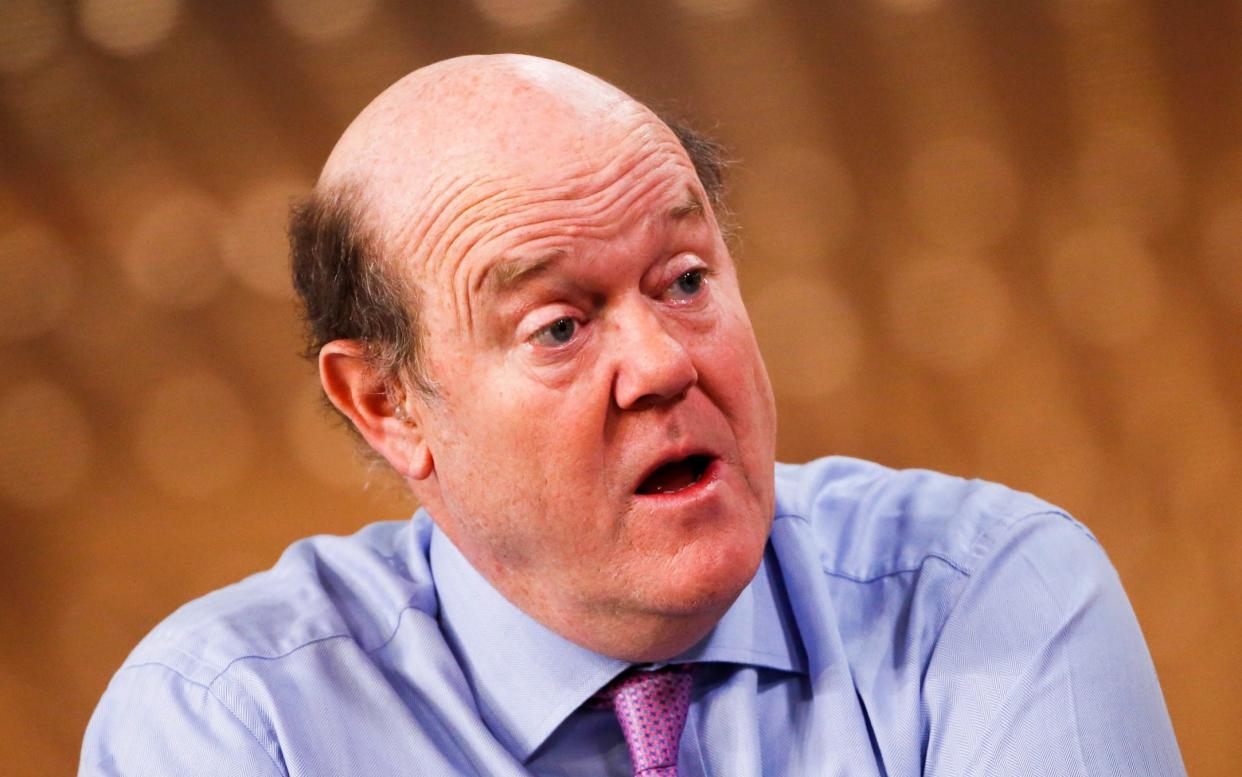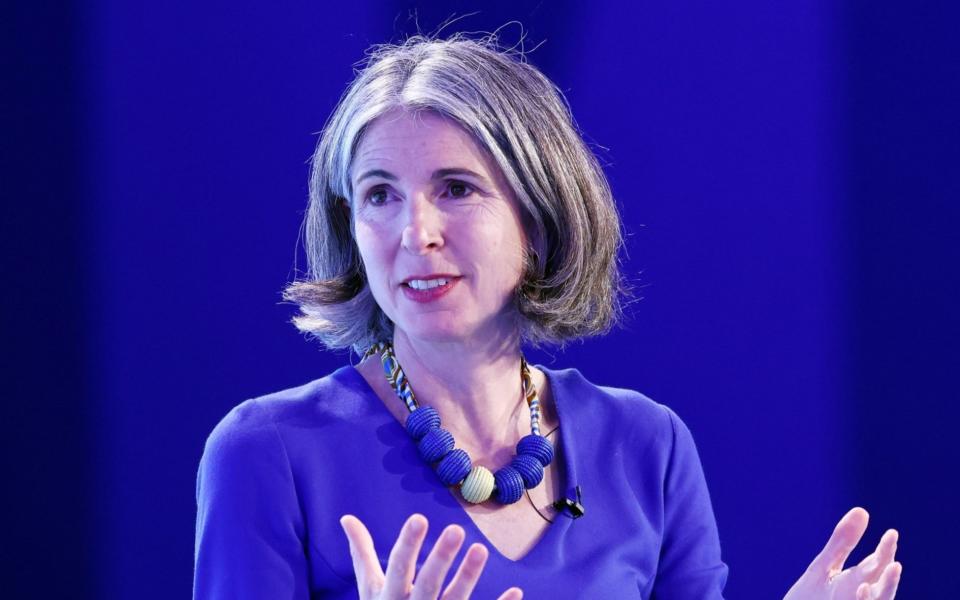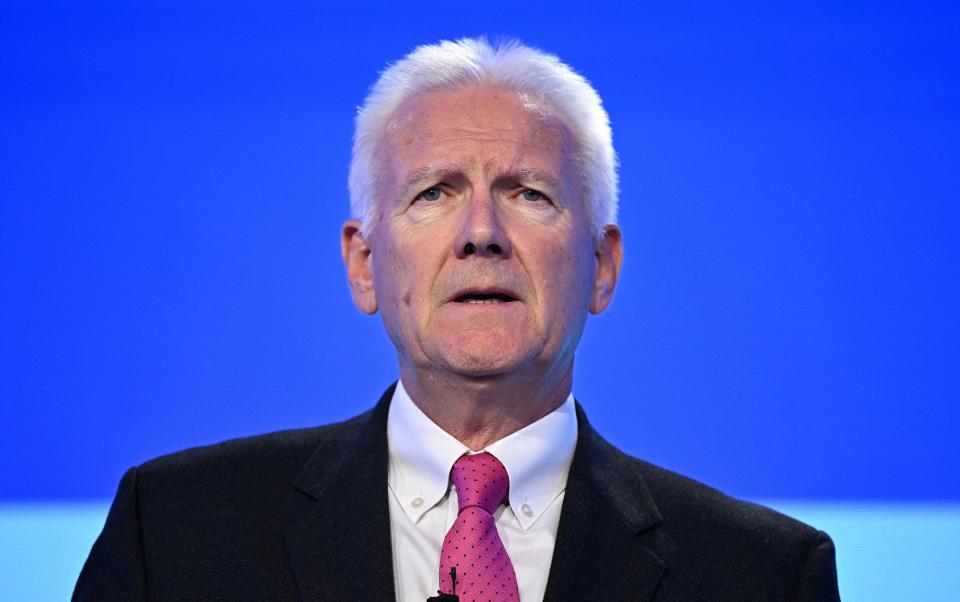The new voice of British business has a habit of walking towards calamity

- Oops!Something went wrong.Please try again later.
- Oops!Something went wrong.Please try again later.
Sir Winston Churchill’s grandson Rupert Soames confessed a few years ago that he has a “horrible habit of walking towards gunfire” when it comes to picking jobs.
Having been a DJ at Mayfair nightclub Annabel’s in his early 20s, the well-connected Oxford graduate and pet goat owner made an early decision to shun the City for a less fashionable career path.
After his first day running outsourcing giant Serco involved a profit warning, an emergency fundraise and the exit of its finance chief all by 5pm, he shrugged that he knew this gig would have its difficulties. “It’s just the order of how many tomatoes are going to be thrown,” he said in 2014.
A decade later even more tomatoes are about to be hurled his way.
His habit of walking towards corporate calamity this time comes in the shape of a new position as president of the crisis-hit Confederation of British Industry (CBI).
The boardroom veteran is reaching out to influential executives returning from their Christmas holidays, eager to chat after the CBI was rocked by sexual misconduct claims and an exodus of corporate members last year.
While many in the City are impressed by the high-profile appointment of Soames given the extent of problems facing the group, he faces some very awkward conversations in the weeks ahead. The CBI is tarnished and nobody knows the point of it anymore.
Before last year’s scandal, criticism previously chucked towards the CBI largely came from Tory Eurosceptics. Now it’s coming from all angles. What was once Britain’s premier corporate lobbying group may have survived near collapse but the extent of its influence during an election year feels weak.
The main complaint in City circles is that although the group seems touchable again following a governance overhaul, it lacks political heft.

Bosses preparing for a potential Labour government doubt that the combination of Soames, whose brother is Tory grandee Lord Soames, and chief executive Rain Newton-Smith, can really influence or expose holes in future policy.
The close public relationship that existed between former CBI director general Adair Turner and Tony Blair after the 1997 election shows them what could be possible, with Turner then becoming a key sounding board for Downing Street.
Sources close to senior Labour figures say that although they are “keen for the CBI not to die”, they now have strong relationships with business leaders directly – which weakens the group’s power. If Newton-Smith calls them up with business concerns, the first thing they do is call contacts to get a cross-section of opinions rather than take it as a definitive view.
That’s a big problem for the CBI, the self-styled “voice of business”. If Soames wants to strengthen the CBI’s standing, he will need to convince City executives that it can influence Sir Keir Starmer better than they can.
He will no doubt highlight that the well-regarded Newton-Smith has regular conversations with both Labour and the current government, while also pointing to the Chancellor having adopted some of the CBI’s flagship policies in his Autumn Statement.
Decent points, but it doesn’t take away from the fact that the organisation as a whole has lost its influence among top Westminster figures at a time when its members have gained it.
Although Soames has reached out to those in his bursting City contacts book, sources say that he has not yet picked up the phone to Sir Keir, shadow chancellor Rachel Reeves or shadow business secretary Jonathan Reynolds.
Ahead of an expected power transfer from the Tories to Labour, many businesses will want to know how the CBI plans to shape debate and become a bigger political player. If the CBI’s members now have their own political relationships and the organisation is no longer considered the definitive voice of business, then what exactly is it?
Without a convincing answer, corporate chiefs will lose interest in the group’s comeback.

Brian McBride, the outgoing CBI president that Soames is replacing, suggested last year that the organisation could be beyond saving after sexual misconduct allegations emerged.
This came hours after Chancellor Jeremy Hunt said there was “no point” engaging with the group because so many businesses had left.
The CBI did go on to receive a vote of confidence from its members but it remains in the midst of an identity crisis.
On edge, the danger is that the group hides behind corporate jargon and performative hand-wringing about vague issues such as trust, when one of its main functions is supposed to be effective communication.
As one City executive puts it, the CBI is in danger of becoming a “hedgehog which rolls into a ball”, hopeful that any drama will simply melt away.
Its future relies on support from contacts, so it needs to listen and respond more clearly to the things it is often criticised about, such as a lack of transparency.
The UK does need an overall voice to act on behalf of business but it does not have to be the CBI. Labour is keen for the group to stick around in some capacity but it could take a different shape and focus more on areas such as analysis.
Soames has a bit of time to turn things around given that there is no obvious immediate alternative, even though prominent companies such as Heathrow Airport last year joined the British Chamber of Commerce’s newly created business council.
A merger of all leading business groups has been suggested as one solution but such a move would be hugely complicated, exemplified by failed tie-up talks with manufacturers’ body MakeUK last year.
Before Soames sits down with decision-makers to draw up a game plan, he needs to consider the question everyone else is asking and come up with a clear answer.
If the CBI has lost its influence and is struggling to be heard, then where is its voice? Many will still be hoping that it somehow finds it.

